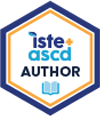
Event Information

Detailed Outline for "Coaching Collaborative Teams: Tools for Teacher Leaders and Administrators"
Introduction & Overview (10 minutes)
Content: Overview of the session’s goals, presenters, and key concepts on team coaching and its role in sparking joyful learning.
Engagement: A brief icebreaker -- the keyboard practice -- where participants share a current challenge they face with team collaboration.
Process: Facilitator-led discussion; audience engagement through paired sharing.
Exploring Key Coaching Strategies (20 minutes)
Content: Introduction to strategies like "Assume Positive Intent," "Adhere to Meeting Components," and "Balance Participation."
Engagement: Present real-life examples and research-backed strategies with time for participants to reflect on their own team dynamics.
Process: Interactive Q&A; participants will annotate a shared digital document with ideas on how these strategies can be applied in their contexts.
Interactive Scenario Discussions: Travelers & Talkers (25 minutes)
Content: Small groups select real-life scenarios of common team problems encountered in the PK-12 educational setting from the handouts to discuss and select appropriate coaching strategies.
Engagement: Groups will collaborate on solutions, with one member ("Talker") sharing insights while others ("Travelers") visit other groups. Participants are provided explicit instructions on the Travelers and Talkers activity while the three presenters track the time and take observational notes.
Process: Peer-to-peer interaction through small group discussions and role-playing; physical movement between groups encourages active participation.
Role-Play: Fishbowl Feedback (20 minutes)
Content: Role-play a coaching conversation based on selected scenarios. One team member acts as a small group coach. 3-4 participants act as a small team of teachers. Others are timers and note-takers of the process. Participants are provided explicit directions on how to prepare and conduct the Fishbowl Feedback activity while the three presenters move among the groups assisting them.
Engagement: Participants take on roles as coaches, team members, or observers, followed by constructive feedback.
Process: Group role-playing activity with observer feedback; fosters experiential learning and immediate peer critique.
Debrief & Group Reflection (15 minutes)
Content: Reflect on key takeaways from the role-play and scenario discussions.
Engagement: Participants share what strategies resonated most and how they will implement them in their schools.
Process: Whole-group discussion with prompts for reflection; participants will complete a digital reflection form.
Action Planning: Creating Your Team Coaching Blueprint (20 minutes)
Content: Participants create an action plan for applying coaching strategies in their teams, focusing on collaboration and joyful learning among adults.
Engagement: Participants will work individually or in pairs to draft a simple coaching blueprint, outlining key strategies and next steps.
Process: Worksheet-based activity; participants will share their plans with a peer for feedback.
Conclusion & Wrap-up (10 minutes)
Content: Recap of major points, Q&A session, and next steps for continuing professional development.
Engagement: Encourage participants to commit to one actionable step and share it aloud or in a digital forum.
Process: Facilitator-led summary; participant sharing and digital exit survey.
Total Time: 120 minutes
Frequency of Engagement: Participants will engage in discussions, role-playing, peer feedback, and hands-on planning every 10-12 minutes. To accomplish this level of engagement, we'll keep participants engaged throughout the session, using collaborative digital tools (shared documents, surveys), peer interaction through role-play and small group discussions, and physical movement (Travelers & Talkers and Fishbowl Feedback).
Costa, A. L., Garmston, R. J., Hayes, C., & Ellison, J. (2016). Cognitive coaching: Developing self-directed leaders and learners (3rd ed). Rowman & Littlefield Publishers.
Hall, G., & Hord, S. (2019). Implementing change: Patterns, principles, and potholes (5th ed.). Pearson.
Kim, L., Jorg, V., & Klassen, R. M. (2019). A meta-analysis of the effects of teacher personality on teacher effectiveness and burnout. Educational Psychology Review, 31, 163-195.
Knowles, M. S., Holton, E. F., III, Swanson, R. A., & Robinson, P. A. (2020). The adult learner: The definitive classic in adult education and human resource development (9th ed.). Routledge.
Northouse, P. G. (2022). Leadership: Theory and practice (9th ed.). Sage.
Young, A. K., & Osborne, T. (2023). Training design, delivery, & diplomacy: An educators’ guide. ASCD.
Young, A. K., Julien, A. B., & Osborne, T. (2023). The instructional coaching handbook: 200+ troubleshooting strategies for success. ASCD.







